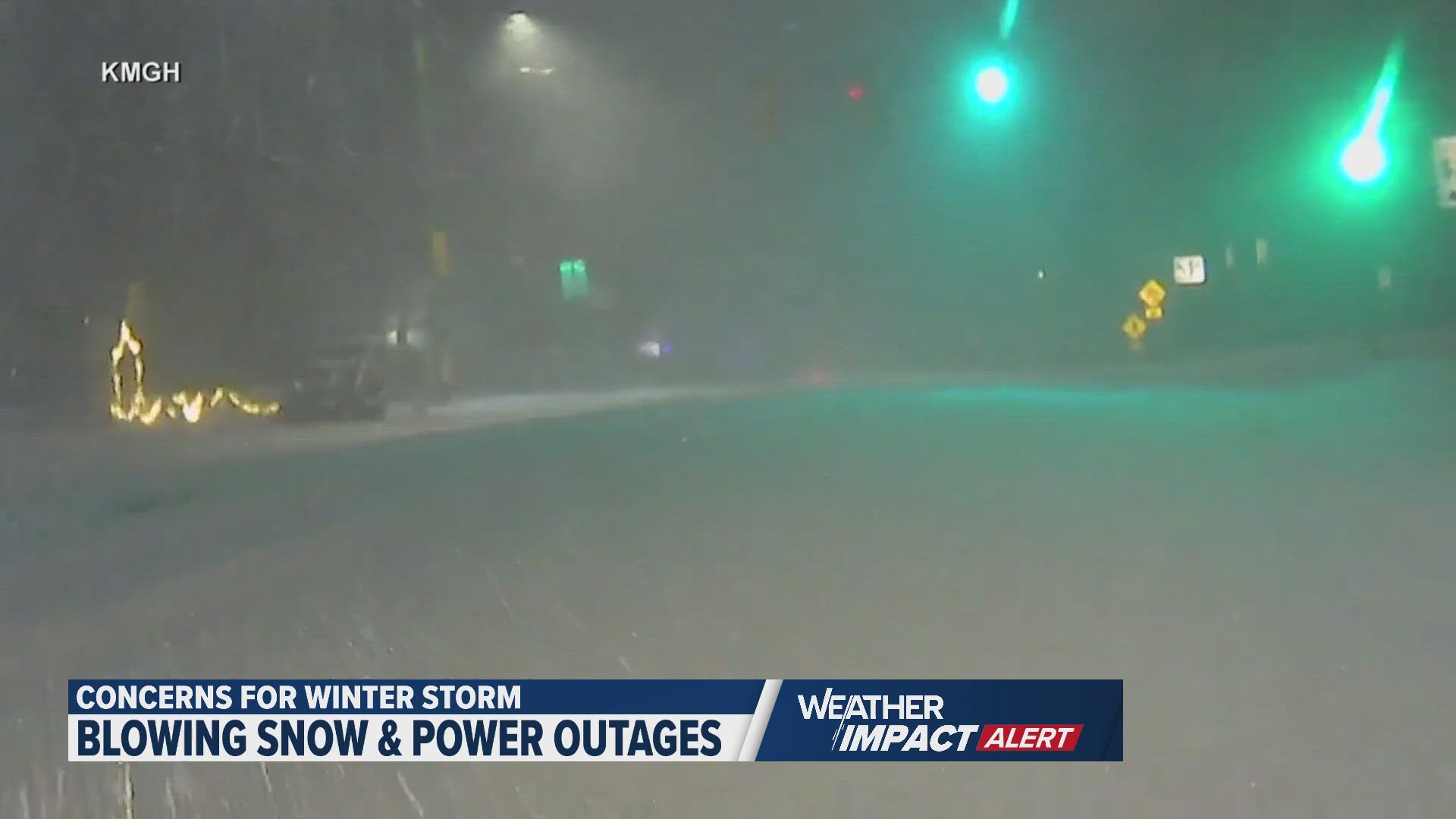MICHIGAN, USA — Michigan, winter is about to announce its arrival.
We’re expecting our most widespread and impactful snowfall so far this year beginning Wednesday evening.
A trifecta of wind, cold and snow is set to create significant challenges for both the evening and morning commutes. Winter Storm warnings have been issued for a vast majority of West Michigan because of these impacts.
Our 13 Weather Impact Team expects a strong cold front will bring heavy snow and strong winds Wednesday night, starting at 5 p.m. and lasting until 1 a.m. Friday. Snow will pile in 6-8 inches widespread, with localized amounts of 10-12 inches possible in areas of persistent lake-effect snow.


Winds will reach 40-50 mph and visibility could drop below 1/4 mile due to falling and blowing snow on the roads. Snow squalls will impact the evening commute on Wednesday, particularly on I-96, I-94 and US-131.
Because of that blowing snow, power outages are possible. Here's what you should do to ensure you and your family stay warm when the heat goes out, according to Michigan officials:
- Dress for the season, wearing several layers of loose fitting, light-weight, warm clothing, rather than one layer of heavy clothing. The outer garments should be tightly woven and water repellent. Mittens are better than gloves.
- Wear a hat—most body heat is lost through the top of the head.
- Cover your mouth with a scarf to protect your lungs.
- Watch for signs of frostbite: loss of feeling and white or pale appearance in the extremities such as fingers, toes, ear lobes or the tip of the nose. If symptoms are detected, seek medical help immediately.
- Watch for signs of hypothermia: uncontrollable shivering, memory loss, disorientation, incoherence, slurred speech, drowsiness and apparent exhaustion. If symptoms are detected, get the victim to a warm location, remove any wet clothing, warm the center of the body first and give warm, non-alcoholic beverages, if the victim is conscious. Get medical help as soon as possible.
- Protect against possible voltage irregularities that can occur when power is restored, unplug all sensitive electronic equipment, including TVs, stereos, and computer.
- Use gasoline-powered generators with caution. Never run a generator inside a house. Place it outside with exhaust facing away from the home.
Ahead of the storm, there are plenty of ways to prepare. Check your flashlights and battery-powered radios to ensure they're working and have plenty of life. Make sure you have fuel for your emergency heating source (gas or wood) and make sure your home is properly insulated.
If your water supply could be affected, fill your bathtub and spare containers with water. Make sure you have enough medication and food to las through a storm.
After a storm, downed electrical wires can be hidden under snow banks or debris. Be cautious and never attempt to move a downed line.
If you can do it safely, check on your neighbors, especially seniors and individuals with disabilities.
Never call 911 about a power outage. You can check a live map of outages and when they're expected to be fixed on the Consumer's Energy website here.
Stick with the 13 Weather Impact Team while we track this winter storm.

